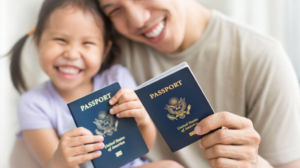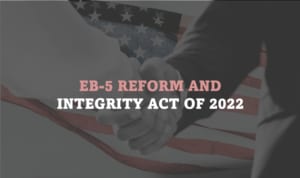A B-1 visa for domestic employees, also known as a B-1 Domestic Employee Visa, allows foreign nationals who are employed by U.S. citizens or nonimmigrant visa holders living abroad to travel to the United States to provide household services. The primary purpose of this visa is to enable employers to bring their domestic workers when they are temporarily visiting or working in the United States.
To qualify for a B-1 Domestic Employee Visa, the following conditions must generally be met:
- The employer must be a U.S. citizen or a nonimmigrant visa holder who is visiting or temporarily residing in the United States.
- The employer must have a primary residence outside the U.S. and intend to return to that residence after their temporary stay in the United States.
- The domestic employee must have been employed by the employer for at least one year prior to the employer’s admission to the United States.
- The domestic employee must have nonimmigrant intent and maintain a residence in a foreign country that they do not intend to abandon.
- The domestic employee’s services must be solely for the employer and relate to their domestic household.
It’s important to note that the B-1 Domestic Employee Visa has specific limitations and requirements. The employment in the U.S. must be temporary and not involve permanent or long-term work in the United States. The employee’s salary, working conditions, and legal protections must meet applicable U.S. laws and regulations.
In some cases, CBP may question the purpose of travel or previous immigration history. To understand how visa issues are handled at the border, it’s helpful to read Nonimmigrant Visa Is Revoked By CBP At Port-of-Entry.
For domestic employees accompanying a K-1 visa applicant’s family, you may also want to explore K-1 Visa Interview Questions 2025 to understand consular scrutiny in relationship-based applications.
You can also stay up to date on current policy changes and trends by visiting our U.S. Visas News section, which features key announcements and legal updates.
As always, it’s essential to consult an experienced U.S. immigration attorney to obtain the most accurate and up-to-date information on visa requirements and eligibility criteria for the B-1 Domestic Employee Visa.
If you have questions about U.S. visas, contact Enterline & Partners at info@enterlinepartners.com and speak with a U.S. immigration attorney in Ho Chi Minh City, Manila and Taipei.
ENTERLINE & PARTNERS CONSULTING
Ho Chi Minh City, Vietnam Office
Suite 601, 6th Floor, Saigon Tower
29 Le Duan Street
Ben Nghe Ward, District 1
Ho Chi Minh City, Vietnam
Tel: +84 933 301 488
Email: info@enterlinepartners.com
Facebook: Enterline & Partners – Dịch vụ Thị thực và Định cư Hoa Kỳ
YouTube: @EnterlineAndPartnersConsulting
Website: http://enterlinepartners.com
Manila, Philippines Office
Tel: +63 917 543 7926
Email: info@enterlinepartners.com
Facebook: Enterline and Partners Philippines
Website: https://enterlinepartners.com/language/en/welcome/
Copyright 2023. This article is for information purposes only and does not constitute legal advice. This article may be changed with or without notice. The opinions expressed in this article are those of Enterline and Partners only.








